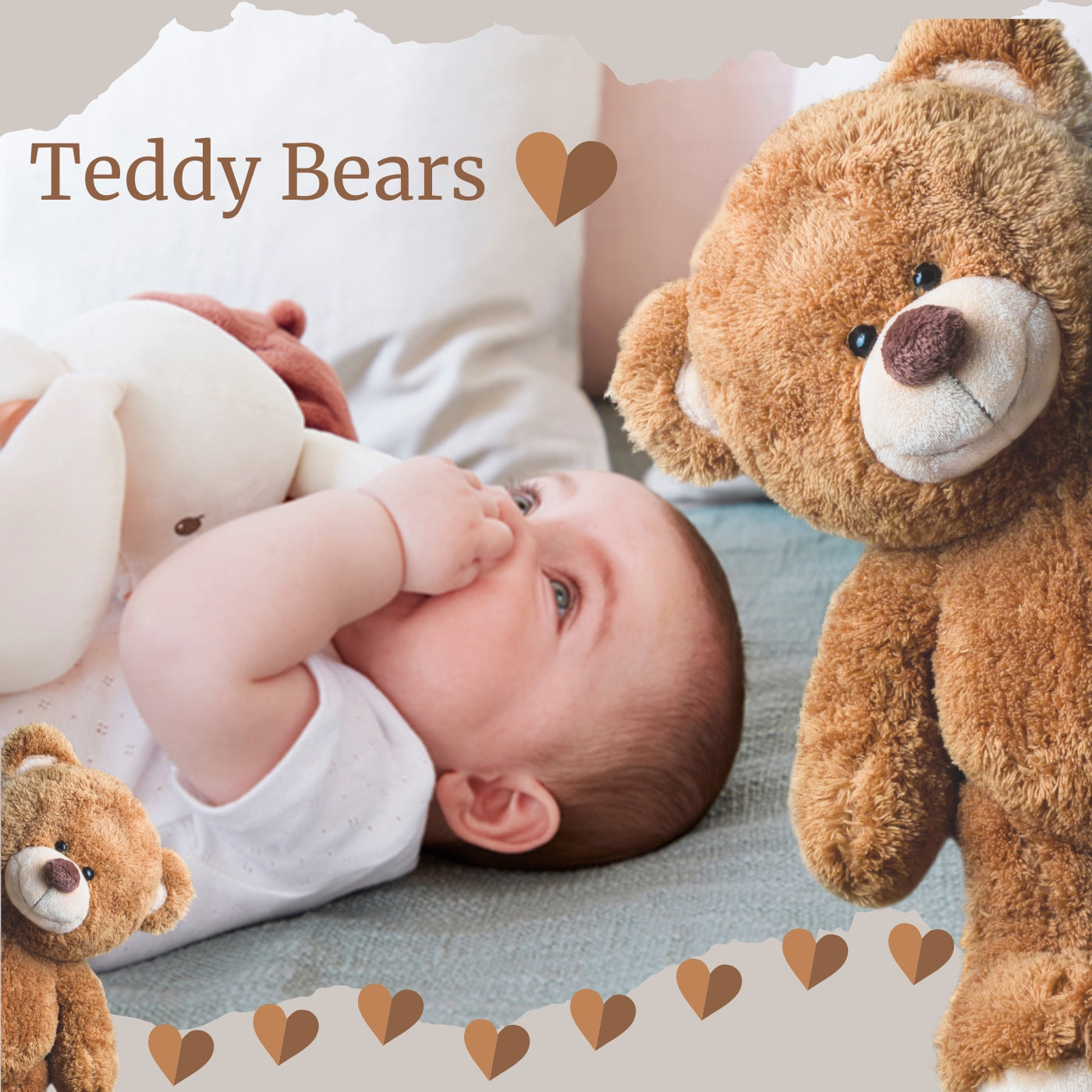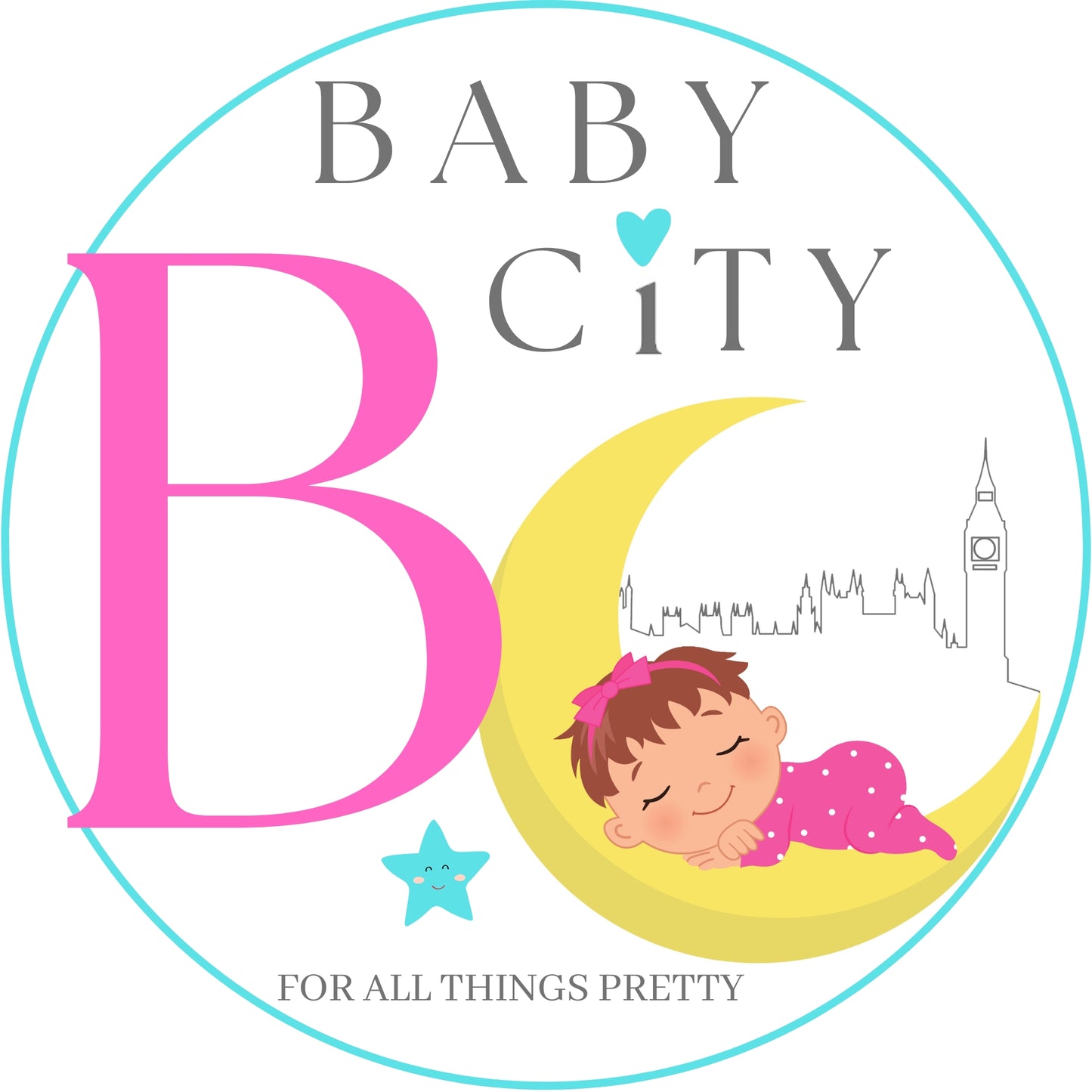
From the moment your child is born, they begin developing in so many ways. As a parent, it's important to provide them with the right tools for growth and development. One of the most valuable tools for your child's development is a companion that they can bond with and learn from. Nursery teddy bears are the perfect companion for your child's growth and development. They offer comfort, a sense of security, and a source of entertainment for your little one. In this post, we'll explore the many benefits of nursery teddy bears in your child's life. From promoting emotional development and language skills to boosting creativity and imagination, you'll see why a teddy bear is the perfect companion for your child.
1. The importance of companionship in a child's development
Companionship plays an important role in a child's development, especially during their early years. Having a companion such as a nursery teddy bear can provide children with a sense of comfort, security, and emotional support.
As children grow and explore the world around them, they may experience anxiety or fear. A nursery teddy bear can provide a source of comfort for them during these times. Children can hug or snuggle with their teddy bear, providing them with a sense of security and helping them feel calm and safe.
Furthermore, a nursery teddy bear can also help children develop their social and emotional skills. Children often use imaginative play with their teddy bears, creating scenarios and stories, and this helps develop their creativity, empathy, and social skills. They can practice their communication and language skills by talking to their teddy bear and expressing their emotions and thoughts.
In addition, a nursery teddy bear can also provide a sense of familiarity and consistency for children. They can become attached to their teddy bear, which can serve as a constant companion and source of comfort throughout their childhood. Overall, the companionship of a nursery teddy bear can have a positive impact on a child's emotional, social, and cognitive development.
2. How nursery teddy bears can help with a child's emotional development
Nursery teddy bears have a significant impact on a child's emotional development. They provide comfort, security, and a sense of familiarity. These soft and cuddly creatures become a part of their daily routine and serve as a constant companion throughout their childhood. They offer a source of comfort during moments of anxiety or stress, and provide a safe haven during times of uncertainty.
Teddy bears also help children to develop a sense of empathy and compassion. They learn to care for their stuffed animal, mimicking the same behavior that they receive from their parents or caregivers. By taking care of their teddy bear, children develop a sense of responsibility and learn how to nurture and love another being.
Moreover, a teddy bear can serve as a transitional object when a child is separated from their parents or caregiver. It provides a sense of security and comforts them in unknown environments like childcare centers or daycare. This helps to reduce separation anxiety and makes it easier for children to adjust to new surroundings.
In conclusion, nursery teddy bears play an essential role in a child's emotional development. They offer comfort, security, and familiarity, and help children to develop empathy and responsibility. So, investing in a nursery teddy bear for your child is a great way to support their emotional wellbeing and provide them with a lifelong companion.
3. The benefits of using nursery teddy bears during playtime
Nursery teddy bears are not just cute, cuddly companions for children. They actually offer several benefits for your child's development, especially during playtime.
Firstly, teddy bears can help your child develop social skills. Children often use teddy bears as a way to communicate and express their feelings. By playing with their teddy bears, children learn how to communicate with others and express their emotions in a healthy way.
Secondly, teddy bears can help your child develop language skills. Children often talk to their teddy bears, asking them questions, and telling them stories. This helps children develop their vocabulary and improve their verbal communication skills.
Thirdly, teddy bears can help your child develop empathy and nurturing skills. Children often mimic the way their parents or caregivers take care of them when playing with their teddy bears. This helps children develop empathy and understanding towards others' needs and feelings.
Lastly, teddy bears can provide comfort and security to your child. Children often cling to their teddy bears when they feel scared or lonely. This helps them feel safe and secure, which is important for their emotional well-being.
Overall, using nursery teddy bears during playtime can offer several benefits for your child's development. So, it's essential to choose the right teddy bear for your child and encourage them to play, communicate and have fun with it.
4. How teddy bears can help with communication and language development
Teddy bears have always been a child's best friend, but did you know that they can also help with your child's communication and language development?
Teddy bears can help children develop their communication skills by providing a source of comfort and security. Children often talk to their teddy bears, sharing their thoughts, feelings, and stories. This helps them develop their communication skills as they learn to express themselves and communicate their ideas to their teddy bear.
Teddy bears can also help children develop their language skills by providing a tool for language learning. Children often practice their language skills by talking to their teddy bear, telling them stories, and even teaching them new words. This helps them develop their vocabulary and language skills, as well as their confidence in expressing themselves.
Furthermore, teddy bears can also help children develop their social skills. When children play with their teddy bear, they learn to interact with others, develop their social skills, and even learn to share and take turns. This helps them develop their social and emotional intelligence, making them better communicators and more empathetic individuals.
Overall, teddy bears are an excellent companion for your child's development, helping them develop their communication and language skills, as well as their social and emotional intelligence. So, the next time you see your child cuddling with their teddy bear, don't hesitate to encourage them and recognize the benefits it brings to their growth and development.
5. The role of teddy bears in building self-esteem and confidence in children
Teddy bears play a crucial role in building self-esteem and confidence in children. As a child grows, they start learning how to interact with the world around them. Teddy bears act as a companion who listens, offers comfort, and provides a sense of security. They are always there to hug, offer a listening ear, and provide comfort when a child is feeling sad or scared. In fact, research has shown that teddy bears can help to reduce anxiety and stress in children, especially when they are in a new environment or experiencing a difficult situation.
Teddy bears also help children to develop their social skills. When children play with teddy bears, they learn how to express themselves, communicate, and share their feelings. They can practice conversations, role-play scenarios, and develop their imagination. This helps to build their self-confidence and encourages them to develop their own personality.
Moreover, teddy bears also help in developing a sense of responsibility in children. When children have their own teddy bear, they learn how to take care of it, keep it clean, and take responsibility for its well-being. This sense of responsibility helps to build their confidence and self-esteem, as they feel like they are capable of taking care of something important.
In conclusion, teddy bears are much more than just a toy for children. They play a vital role in building a child's self-esteem and confidence. They provide comfort and security, help to develop social skills, and encourage a sense of responsibility. Therefore, if you are looking for a perfect companion for your child's development, a teddy bear is definitely the way to go.
6. The importance of consistency and familiarity for children
Children thrive on consistency and familiarity. They feel safe and secure when they know what to expect. This is where nursery teddy bears come in. A teddy bear can be a constant presence in a child's life, providing a sense of stability and comfort.
Children often form strong attachments to their teddy bears, and these attachments can last for years. This is because teddy bears are a tangible reminder of a child's early years, and the memories associated with them. They provide a sense of security, especially when a child is facing a difficult situation.
In addition, teddy bears can be a great tool for teaching children about responsibility. They can learn how to care for their teddy bear, such as feeding it, bathing it, and putting it to bed. This type of play can help build a child's confidence and independence.
Overall, nursery teddy bears can be a valuable part of a child's development. They provide comfort, consistency, and can help teach important life skills. With their soft and cuddly nature, it's no wonder why they are such a popular companion for children.
7. How to choose the perfect nursery teddy bear for your child
Choosing the perfect nursery teddy bear for your child is an important decision. Here are some things to consider when making your selection:
1. Safety: Make sure the teddy bear is made with child-safe materials and doesn't have any parts that could be easily swallowed or pose a choking hazard.
2. Comfort: The teddy bear should be soft and cuddly, with a texture that your child will enjoy touching and holding.
3. Size: Choose a size that is appropriate for your child's age and size. A teddy bear that is too small may not provide enough comfort, while one that is too large may be difficult for your child to hold or carry around.
4. Durability: Look for a teddy bear that is well-made and can withstand the wear and tear of a child's playtime. It should also be easy to clean, as it will likely get dirty over time.
5. Personality: Consider your child's personality and interests when choosing a teddy bear. Some children may prefer a teddy bear that is a specific color or has a certain pattern, while others may prefer a teddy bear that is dressed in a particular outfit or has a specific facial expression.
By taking these factors into account, you can choose the perfect nursery teddy bear that will provide comfort, security, and companionship for your child as they grow and develop.
8. Tips for incorporating nursery teddy bears into daily routines
Incorporating nursery teddy bears into daily routines can be extremely beneficial for your child's development. Here are some tips on how to do it:
1. Make the teddy bear a part of your child's bedtime routine. Have your child pick out their teddy bear to sleep with every night. This will help your child feel safe and secure, and it will also help establish a bedtime routine.
2. Use the teddy bear to help teach your child about emotions. You can ask your child to talk to their teddy bear about how they are feeling or use the teddy bear to act out different emotions.
3. Use the teddy bear to teach your child about responsibility. Have your child help take care of their teddy bear by making sure it is clean and in good condition.
4. Use the teddy bear to encourage imaginative play. Encourage your child to come up with different scenarios and stories involving their teddy bear.
5. Take the teddy bear on adventures with your child. Whether it's a trip to the park or a visit to the grocery store, bringing the teddy bear along can make the experience more fun and enjoyable for your child.
Overall, incorporating nursery teddy bears into daily routines can have a positive impact on your child's development. It can help them feel safe and secure, teach them about emotions and responsibility, encourage imaginative play, and make everyday experiences more enjoyable.
9. How to care for your child's nursery teddy bear
Taking care of your child's nursery teddy bear is important to ensure that it lasts for years to come. Here are a few tips to help you take care of your child's teddy bear:
1. Wash it regularly: Your child's teddy bear may get dirty due to frequent use, and this may cause it to smell bad. To avoid this, wash the teddy bear regularly. You can either hand wash it or put it in the washing machine. Make sure to use a mild detergent and cold water to avoid damaging the fabric.
2. Store it properly: When not in use, it's important to store the teddy bear properly. Keep it in a cool and dry place, away from direct sunlight. You can also put it in a plastic bag to protect it from dust and dirt.
3. Repair any damages: Over time, your child's teddy bear may get damaged due to frequent use. Make sure to repair any damages as soon as possible to avoid further damage. You can either sew it yourself or take it to a professional.
4. Rotate it with other toys: It's important to rotate your child's toys regularly to keep them interested and engaged. This also helps to reduce wear and tear on one particular toy, including their favorite teddy bear.
By following these simple tips, you can ensure that your child's nursery teddy bear is well-cared for and stays with them for years to come.
10. Conclusion: Why nursery teddy bears are an essential part of a child's development.
In conclusion, nursery teddy bears are an essential part of a child's development for a number of reasons. Firstly, they provide comfort and security, which is especially important for young children who may struggle with separation anxiety or other emotional issues. Having a teddy bear to cuddle up with can help to soothe a child and make them feel safe and protected.
Secondly, teddy bears can be used to help children learn important life skills, such as empathy, responsibility, and nurturing. By taking care of their teddy bear, children can learn how to be kind and compassionate towards others, as well as develop a sense of responsibility and ownership over their possessions.
Finally, teddy bears can also help to spark a child's imagination and creativity. Many children enjoy creating stories and adventures for their teddy bears, which can help to develop their language skills, as well as their ability to think creatively and outside the box.
Overall, nursery teddy bears are much more than just a simple toy. They can have a profound impact on a child's development, helping them to feel secure, learn important life skills, and develop their imagination and creativity. So, if you're looking for a way to support your child's development, consider investing in a nursery teddy bear today!

